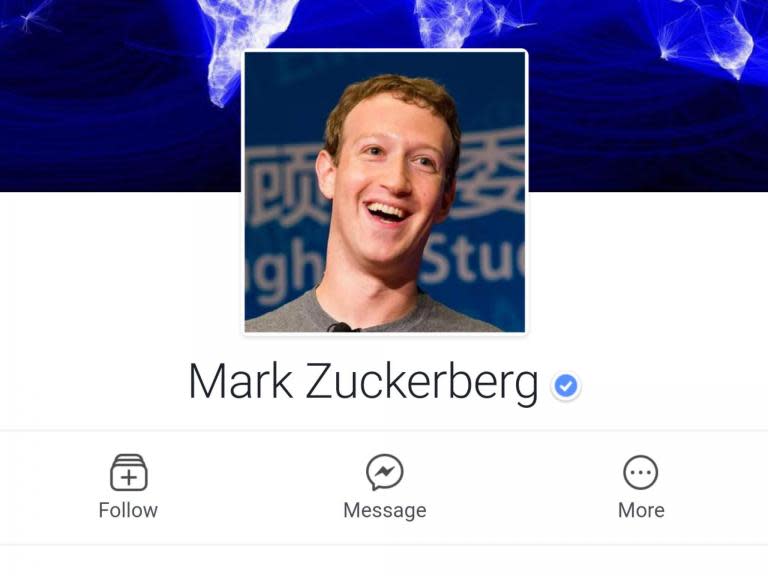Facebook is destined to become a regulated public utility
If you want billionaires to take notice you don’t write disagreeable things about them in newspapers or sue them in the courts. You hit them in their bank accounts.
And so it is with Mark Zuckerberg, he of Facebook fame. Nothing can take away his achievement: creating a social network of more than 2 billion people. There are 2.13bn active users each month, and there are only 7.3bn people in the world. That is amazing and it turned Zuckerberg into the fifth richest person in the world, who thanks to his shareholding in Facebook was worth last Friday $75bn.
Now, thanks to the fall in the price of Facebook shares, on my quick tally he is down to about $65bn. We should not feel too sorry for him, for that decline is not going to affect his standard of living. But what it does signal, though, is that the financial markets are having a rethink about the business prospects of Facebook, and in particular the ways in which the almost unthinkably huge database of information about 2 billion people can be deployed. There have been rumbling concerns for some time about privacy and abuse of data collected by social media. Now those concerns have burst out and Facebook is first in the firing line.
There are several issues and it might be helpful to separate them out.
Most immediately there is privacy. Every time we log on, we give information about ourselves. We make a Faustian bargain. In exchange for free access to an extraordinary range of information we give up data about ourselves. Actually I won’t go on Facebook, but I checked on Google a few moments ago to see what had happened to the Facebook share price. So Professor Google knows I am interested high-tech shares. I also checked for Cambridge Analytica accounts to see what had been filed at Companies House, so they know about that too.
Most of us are happy with that bargain, but we have a right to know that information about ourselves will not be abused. Quite what is reasonable use of the data is a grey area, and defining what is legal and what is not (and revising laws where appropriate) will occupy politicians and lawyers around the world for at least the next five years. When any new technology arrives it takes a while for legal practice to catch up.
Next, there is the echo-chamber effect: people are fed information they want to hear or at least are particularly interested in. I had the ultimate example of that the other day. A story came up on my Samsung phone about German politics, because apparently I had shown interest in Angela Merkel. I scrolled down and then saw another story about the German economy that looked more interesting. It was very clear and sensible. I was about three sentences in before I realised I had written it myself.
Put together the information we hand over and the echo-chamber effect and you see how valuable the social media are to political parties, hence the latest row. But there are two further challenges.
One of these is tax. This is a particular issue for Europe, since all the high-tech giants are American or Chinese. (It is a fascinating and troubling side issue, as to why Europe and the UK have failed to create a Google or a Facebook.) Now the EU is seeking to put a 3 per cent turnover tax on these technology companies, and there is a debate on how to do so at the EU Council of Ministers on Thursday. Quite whether or how this will work is far from clear, and since the companies are all American it may provoke retaliation from the US.
The other is the destructive impact on existing business models, including Amazon’s effects on the High Street, and the online media on newspapers. (At the Independent we are in the middle of the latter, being the first major newspaper in the world to go entirely on-line.) No business model is ever static and the online shopping revolution has been a blessing to many, but every time we buy something online we are not buying it in a store.
Eventually this will settle down. There will be new privacy controls and we as users will be required to give consent to passing on information about ourselves. There may well be prosecutions for abuse of data. We will become more cautious about what we put out on a public platform. We will grow more canny about the dangers of the echo-chamber. And the old business models will adapt to the new challenges.
Have we passed “peak Facebook”? I’m not sure, but I think its glory days may be over. It will become more of a regulated public utility, less a ground-breaking social and economic phenomenon. And that is fine. It is the way capitalism works.

 Yahoo News
Yahoo News 

